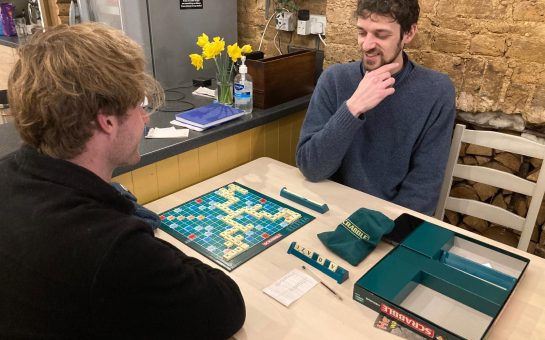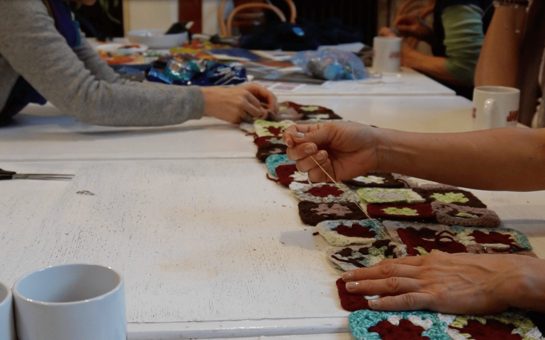SWLondoner’s Cyrus Engineer tries his hand at the sport.
It’s 8.30 on a crisp morning in November as I stand outside the clubhouse of the Kingston Royals Dragon Boating club, in Teddington, with Kingston town centre just across the river.
Back in September the club’s ladies team won the Great River Race, a 21-mile race along the Thames, an annual event that attracts over 300 teams from all over the world.
The men’s team finished third and the next week the ladies team won the 200m and 500m races at the national championships, bringing their overall number of wins in the competition to 20 out of the last 23 championships.
Having written about their success, their press officer and team member Suzanne Seyghal kindly invited me down to the club to try dragon boating for myself.
And so here I am, joining in with one of the beginner sessions the club regularly run to introduce members to the sport of dragon boating.
Along with regular team members there are three beginners here today and we sit on the clubhouse balcony as team member Sarah Baxter runs us through the basics of the sport.
Down below the club’s vice-captain Cat is trying to balance the boats to prevent us capsizing the moment we get onboard.
This means ensuring that weight is evenly spread top to bottom and left to right.
Sarah tells us that we must be able to swim at least 50m in heavy clothing in case we do capsize.
“If you can’t it is not a problem but just let me know now,” says Sarah.
Having not made a habit of attempting to swim Olympic laps in full clothes I choose to say nothing, praying this scenario does not come to pass.
At this point my nerves, which had been growing steadily, now kick into overdrive.
The fear of the boat capsizing and having to swim to safety is one thing; the greater fear is that I will be the one who causes it.
After a quick warm up where it becomes painfully clear just how inflexible I am, we’re boarding the Olympia, the same boat that was used in both the Great River Race and the Queen’s Diamond Jubilee celebrations.
My aim of getting through the session without drawing attention to myself goes out the window as I trip and fall into the boat.
After attempting to laugh it off, we begin. Despite Sarah’s excellent explanation and demonstration only minutes ago, I have already forgotten most of what she said.
There are four basic stages to a standard dragon boat paddle. First comes the “catch” as you paddle enters the water. Then comes the “pull” against the water. Next comes the “finish” as your paddle exits the water and finally the “reach” as you prepare for the next stroke.
The two things that Sarah said that have stuck in my mind is that if you are out of rhythm with the rest of the boat it will be painfully obvious and also that your technique is wrong you will end up soaking the person behind you.
I manage to accomplish both these things within moments of setting out onto the Thames on what is a glorious sunny day, with boats going up and down the river, people jogging along the bank and one man single-handedly trying to sink a boat.
At the helm of the boat is Fliss, who instructs us and tries to maintain our rhythm as we head up and down the Thames.
As well as being totally out of rhythm and splashing huge amounts of water all over the place I also manage to continually smash paddles with the person in front of me.
Eli, a very friendly and fortunately for me, forgiving, New Zealander, tells me not to worry about it and that it takes a while to get the hang of it.
He’s not kidding and Fliss decides to quicken the pace by extending our “reach”, which in my case means splashing even more water aboard.
As well as Fliss’ guiding voice we also have Peter following us in a motorboat with a megaphone pointing out when we are out of rhythm and encouraging us to raise the pace.
After several drives along a 500m stretch of river we finally head back to dry land and I suddenly realise just how exhausting it was.
As we lift the boats, which can way up to a ton, onto the shelves, I chat to Marco another of the beginners who, like me, had never tried dragon boating before.
“It was really good, much harder than I thought it would be but I would definitely do it again,” he said.
As the team hang around to chat over tea and bacon-sandwiches, I chat to Janet, another Kiwi who has been a club member for eight years having joined shortly after moving here from New Zealand.
“Back home it is much more of a corporate thing with a heavy emphasis on drinking,” she said.
“I much prefer it here and everyone was so welcoming when I first joined.”
The club train twice a week, on Saturday morning and Tuesday evenings. In the winter Tuesday sessions take place in the gym as it is to dark to be out on the water.
Everyone at the club could not have been more welcoming and I urge anyone who is even a little curious to come down to the club and try it themselves.
For information about the club and the dates and times of its sessions visit www.kingstonroyals.com.
Follow us on @SW_Londoner




